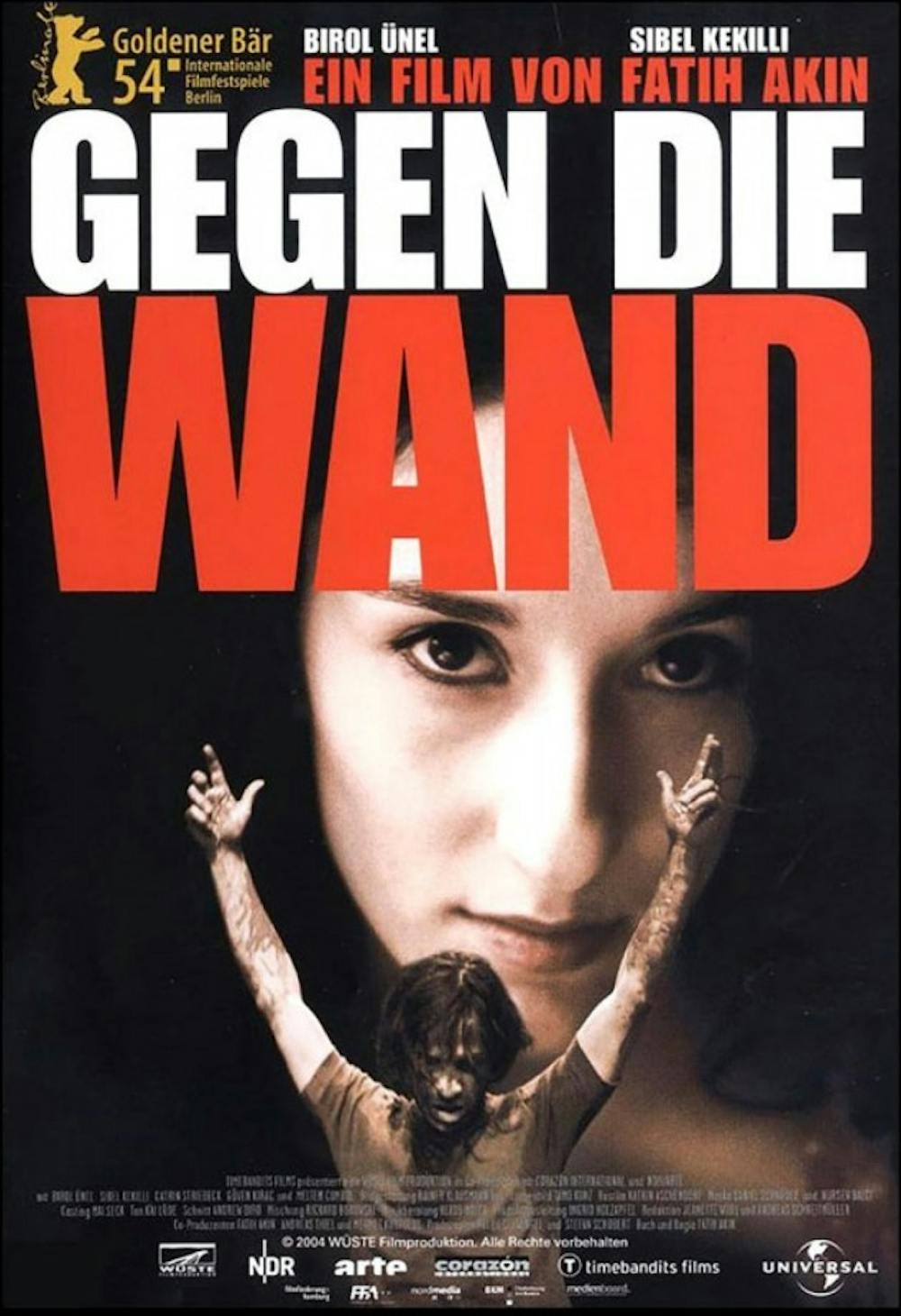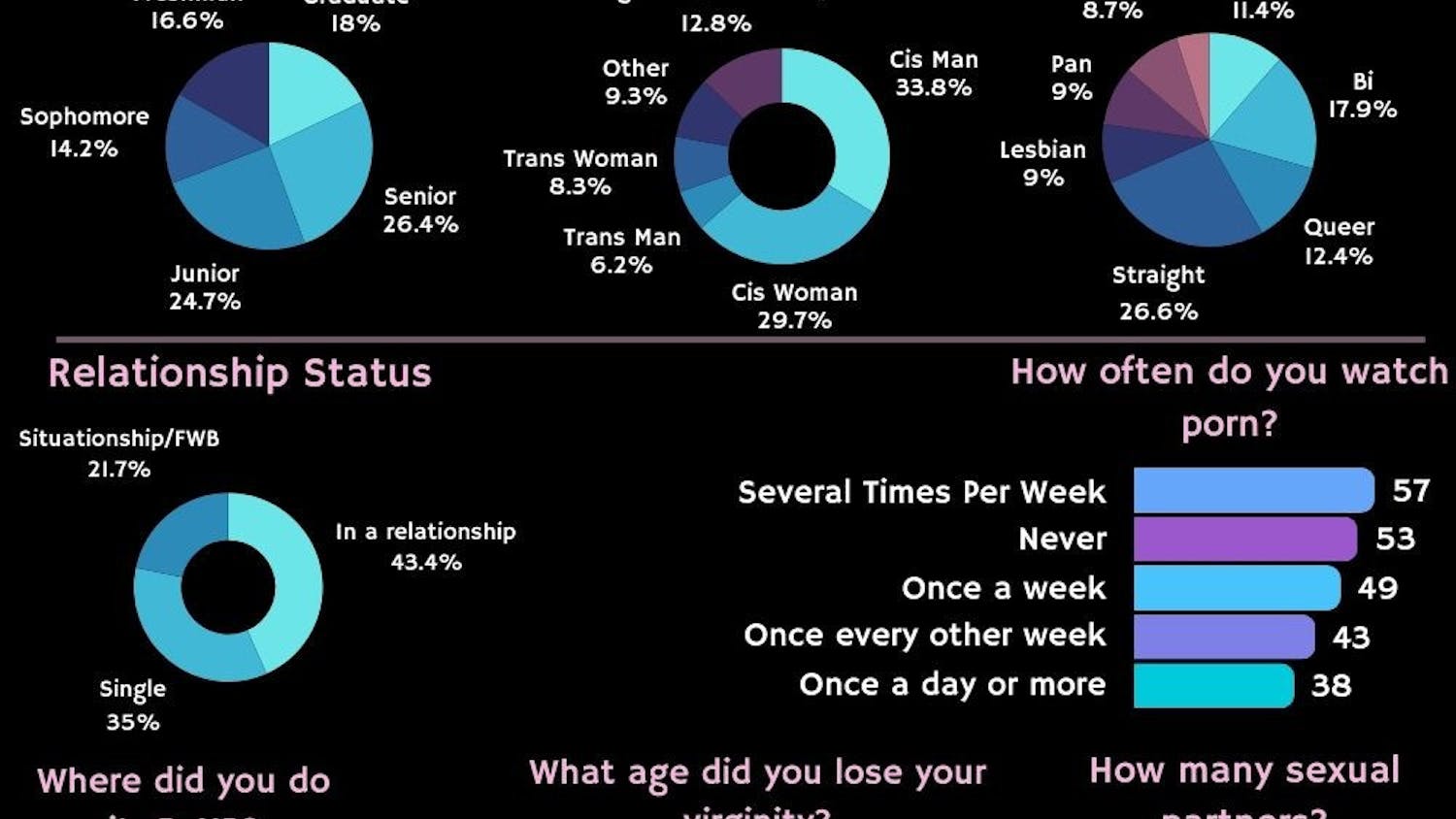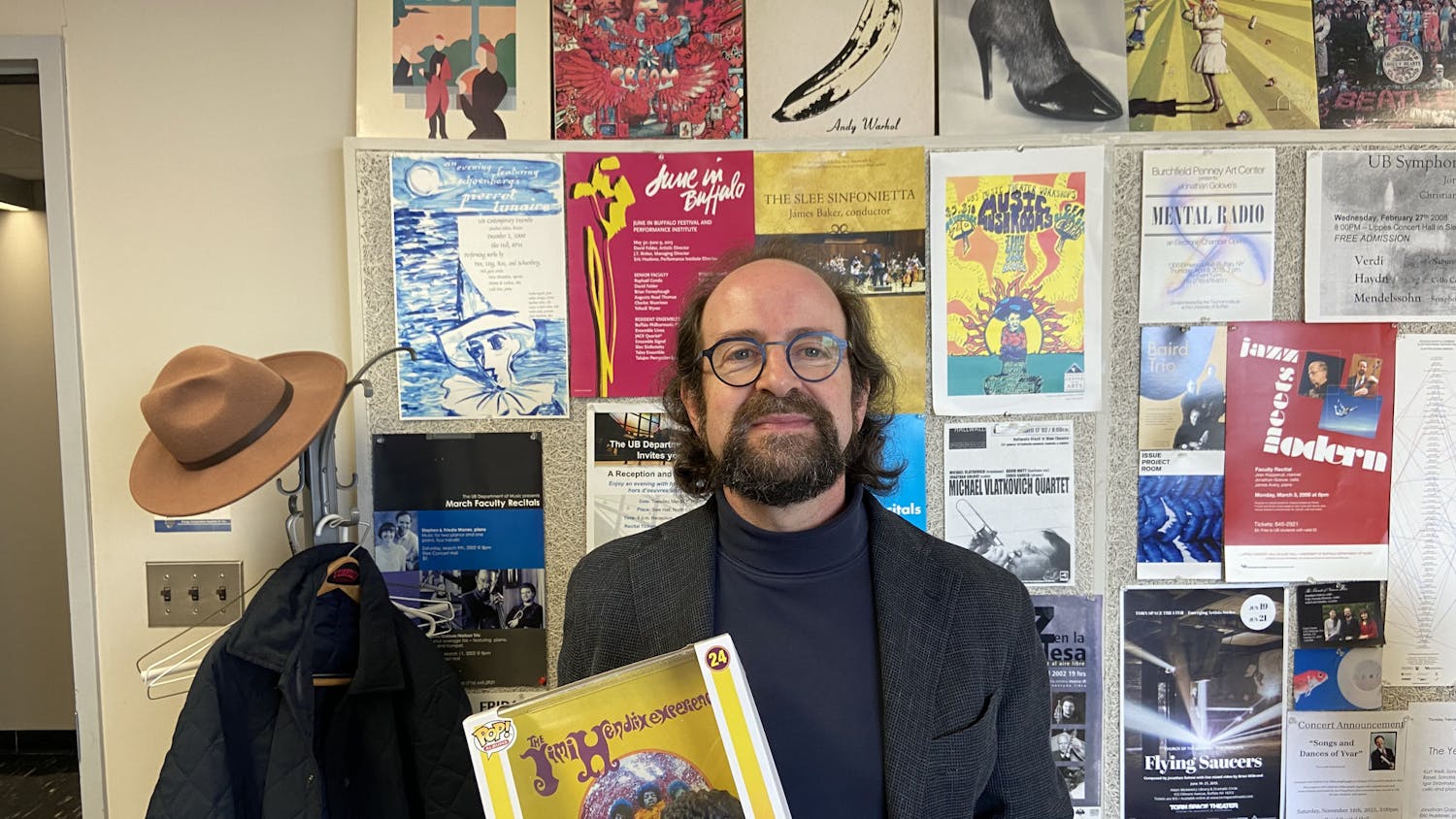The scene begins with a middle-aged man driving his car headfirst, into a brick wall.
The UB German Program, with support from the Graduate Group for German and Austrian Studies, presented the second film, Gegen die Wand, in a semester-long series focused on Turkish-German cinema Oct. 16 in Talbert Hall. The series aims to provide an outlet for members of the UB community interested in German language and culture. Gegen die Wand was directed by the Turkish-German director Fatih Akin and explores the issues Germans and Turks face with integration and transcultural contact.
“I really liked the movie because it demonstrated well the immigration situation of German Turks and the intercultural situation they’re in,” said Cécile Heim, a graduate English major from Switzerland. “I like that it wasn’t romanticized – the film was blunt and realistic.”
Gegen die Wand translates to “against the wall,” but is titled Head-On for English-speaking audiences.
Turkish immigration routes into Germany were first established in the early 1960s when “guest workers” were recruited from Turkey to fill a void in the workforce. The peak of migration occurred in 1973 and as children of these immigrants received citizenship, Germany’s Turkish population grew exponentially.
Set in contemporary times, Gegen Die Wand explores the legacy of this historical development through the relationship of Cahit, who drove into the brick wall, and Sibel, a second-generation 20-something-year-old born in Hamburg, Germany. Unable to navigate the liminal space between a conservative Turkish family and German youth culture, Sibel attempts suicide, subsequently meeting Cahit in the hospital.
“I had no idea that a German Turk existed, let alone that there was such a profound cultural movement,” said Andrew Ruether, an English major.
Although the show is considered a drama, Gegen die Wand is also laced with humor, saturated with violence and broken up with musical interludes.
The dramatic drive of the film is not entertainment but rather exploring multiculturalism in Germany.
Multiculturalism in Germany “has failed, utterly failed,” according to German Chancellor Angela Merkel in 2010. For this reason Gegen die Wand ends somewhat inconclusively, for the solution to Angela Merkel’s condemnation of multiculturalism remains speculative.
“One of the best parts about learning a second language is that you create new opportunities for meeting new, interesting people,” said Tom St. Pierre, a graduate teaching assistant in the UB German Program and one of the event’s organizers. “For us, the German film nights are a way for people who would not otherwise know each other to come together and share their interest in German language and culture.”
The next film, Auf der Andren Seite, will be shown on Nov. 20 at 7 p.m. in Talbert 103. This film, also directed by Fatih Akin, will provide a further example of Turkish-German cinema.
email: features@ubspectrum.com





